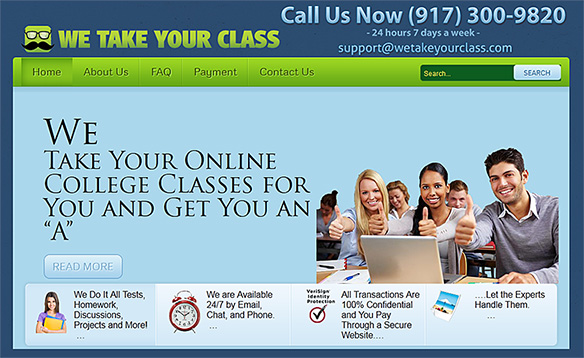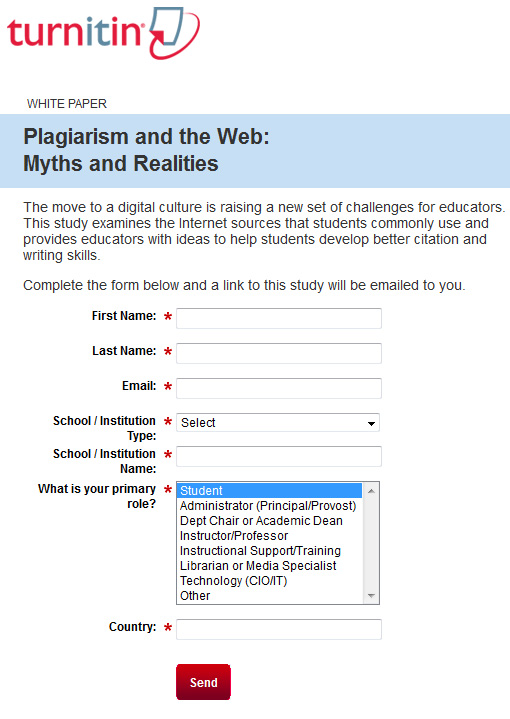From DSC:
The wetakeyourclass.com website below is very disturbing in terms of the questions it raises — though such questions and activities are certainly not limited to what occurs in the online classroom, as evidenced by The Shadow Scholar (from The Chronicle by Ed Dante) where a man confessed to writing ~5,000 scholarly papers for students, including grad students.
Questions:
- Should the owners of this site go to jail? Or is this just capitalism gone awry?
- Does this business make a profit? If so, why and what does that say?
- Is this type of thing happening for just a handful of people out there? How would we know? Can the turnitin.com’s of the world detect/stop this?
- If their services are in demand, should that inform or influence any differences in the strategies or pedagogies we utilize within higher education? Do we need to re-evaluate what’s really being achieved and not achieved? That is, if employers didn’t look to a college degree, would students come to learn anyway or would they be gone by morning?
- What, if anything, does it say about students’ ethics? Matters of the heart?
.

Look at some of the “services,” “benefits,” and messages being offered therein:
- We take your online classes for you and you get an A
Underlying message: We’ll help you get that piece of paper so you can move on to what really counts. (Don’t worry about not knowing anything…you won’t have to prove yourself later on…and never mind about your work ethic, this is a one-time-cutting-the-corners type of decision, right? Isn’t it? Isn’t it?!)
- Life is too short to spend on classes you have no interest in
- Give us a deadline and we will meet it!
Underlying message: Corporations outsource many things, why shouldn’t you? (Never mind that learning should be your core business and should not be outsourced.)
How about you all, what are some questions that this type of thing raises in your minds?










